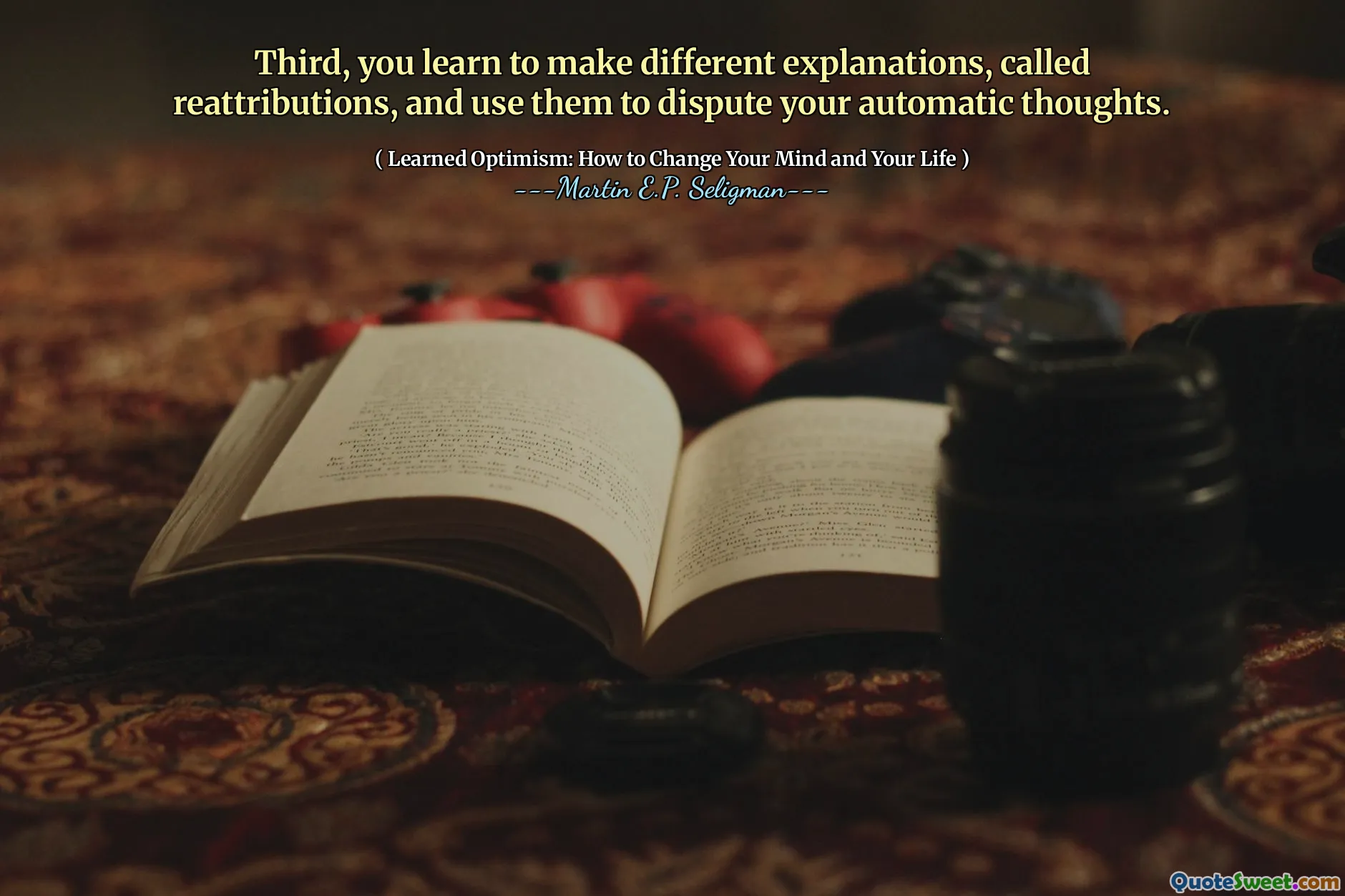
Third, you learn to make different explanations, called reattributions, and use them to dispute your automatic thoughts.
This quote highlights a fundamental concept in cognitive psychology, particularly within the framework of learned optimism as presented by Martin E.P. Seligman. The process of generating alternate explanations, or reattributions, empowers individuals to challenge their automatic negative thoughts, which often are biased or unfounded. Such automatic thoughts can perpetuate feelings of helplessness, sadness, or anxiety, leading to a negative spiral. By consciously disputing these thoughts and crafting more balanced or positive explanations, one actively reshapes their cognitive patterns and emotional responses.
The significance of this approach lies in its practical application. It transforms passive sufferers of automatically negative thinking into active participants in their mental health journey. Instead of accepting the first negative interpretation, individuals learn to question and analyze the causes of events, considering multiple factors rather than a single, pessimistic view. This practice fosters resilience and promotes a more optimistic outlook on life.
Importantly, reattributions are not about denying reality or adopting unwarranted optimism; rather, they encourage a nuanced understanding of circumstances. They help people realize that outcomes are often influenced by diverse factors including effort, chance, and external conditions. This insight can be liberating, reducing self-blame and promoting greater psychological flexibility.
Overall, this quote captures a crucial mechanism in overcoming negative thinking patterns by encouraging proactive cognitive restructuring through reattributions. It aligns with the broader theme of Seligman's work on how optimism can be learned and cultivated, thereby improving mental well-being and life satisfaction.






